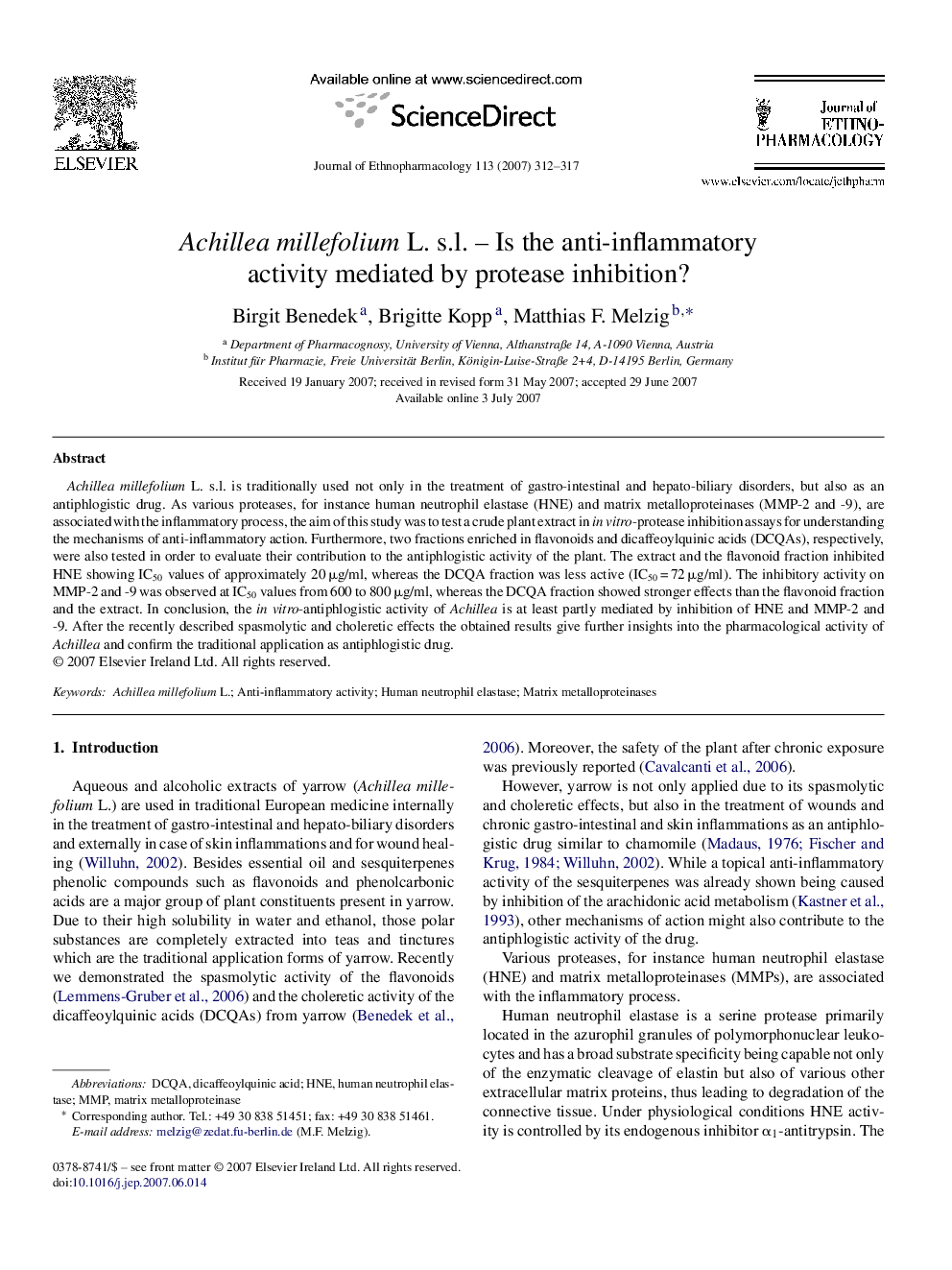| Article ID | Journal | Published Year | Pages | File Type |
|---|---|---|---|---|
| 2548009 | Journal of Ethnopharmacology | 2007 | 6 Pages |
Achillea millefolium L. s.l. is traditionally used not only in the treatment of gastro-intestinal and hepato-biliary disorders, but also as an antiphlogistic drug. As various proteases, for instance human neutrophil elastase (HNE) and matrix metalloproteinases (MMP-2 and -9), are associated with the inflammatory process, the aim of this study was to test a crude plant extract in in vitro-protease inhibition assays for understanding the mechanisms of anti-inflammatory action. Furthermore, two fractions enriched in flavonoids and dicaffeoylquinic acids (DCQAs), respectively, were also tested in order to evaluate their contribution to the antiphlogistic activity of the plant. The extract and the flavonoid fraction inhibited HNE showing IC50 values of approximately 20 μg/ml, whereas the DCQA fraction was less active (IC50 = 72 μg/ml). The inhibitory activity on MMP-2 and -9 was observed at IC50 values from 600 to 800 μg/ml, whereas the DCQA fraction showed stronger effects than the flavonoid fraction and the extract. In conclusion, the in vitro-antiphlogistic activity of Achillea is at least partly mediated by inhibition of HNE and MMP-2 and -9. After the recently described spasmolytic and choleretic effects the obtained results give further insights into the pharmacological activity of Achillea and confirm the traditional application as antiphlogistic drug.
